
by Jill Ragar Esfeld
jill.esfeld@theleaven.org
KANSAS CITY, Kan. — “God was our only hope when we chose this way,” said Kobra, an Afghan who was recently granted asylum in the United States. “It was not an easy way.
“And we didn’t have anything except God and our prayers.”
Thanks to help from La Luz Immigration Clinic of Catholic Charities of Northeast Kansas, Kobra, her husband Mohammad and her mother Zainab are finally safe and beginning a new life.
But their road to freedom was not easy.
No way out
Trained by U.S. Special Forces and issued a Presidential Protection ID card along with a federal firearms license, Mohammad served as an officer on the security detail for the American-backed vice president of Afghanistan. Mohammad was risking his life on a daily basis to defend democracy in his country.
Because of his position, all of Mohammad’s biometric information was in the Ministry of Defense’s database that was taken over by the Taliban after U.S. forces withdrew in August 2021.

The family are ethnic Hazara, and the Taliban aggressively seeks out that ethnicity for persecution. Coupled with the distinctive facial features of the Hazara and the biometric information in the hands of the Taliban, Mohammad was particularly vulnerable to identification and apprehension.
In 2021, when Taliban forces captured Kabul, Mohammad was at work.
“It was very scary,” said Kobra, only 20 years old at the time. “Everyone was running to the airport or trying to hide somewhere.
“[Mohammad and his coworkers] just left their job and left all their equipment there. They just got out and tried to get home.”
But by the time Mohammad got home, the U.S. withdrawal from Afghanistan had turned to chaos. There was no safe route to the airport.
“There were so many checkpoints on the way,” said Kobra. “They were going to get your fingerprints, and if they find out you are working [for the United States] they wouldn’t let you go.”
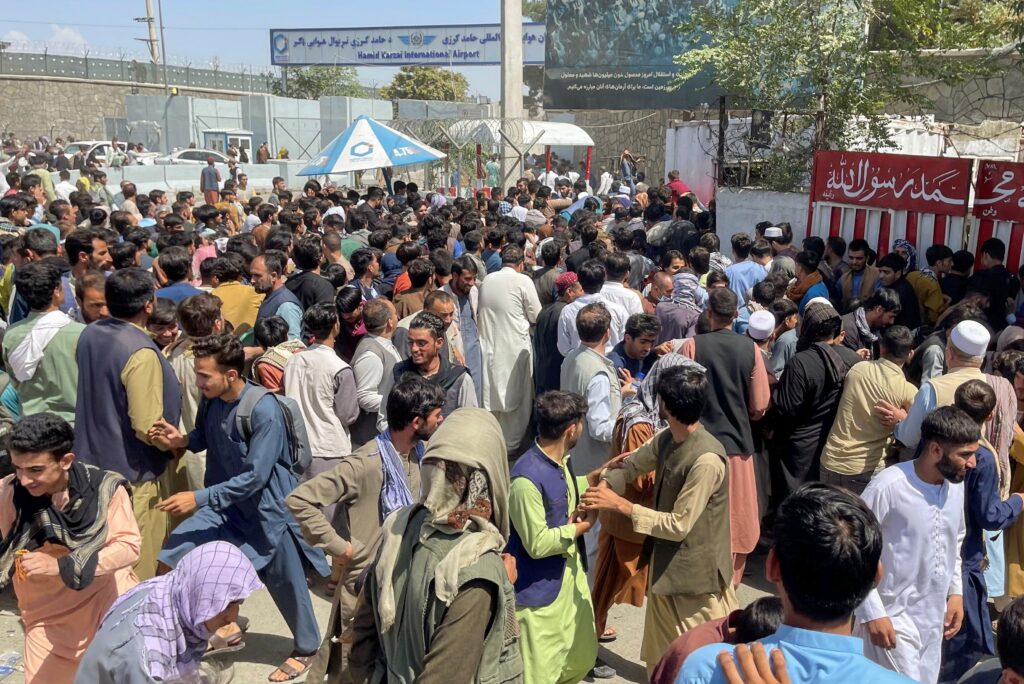
So instead of being part of the evacuation, and welcomed to the United States with open arms, Mohammad and his family, like thousands of others, were left behind. There was not only the risk of detainment; ultimately, 14 members of the Afghan government security detail were executed by the Taliban.
There was no going back.
Initially, the three tried to make their way to the Iranian border, but it was too dangerous and they turned back.
As the Taliban began searching from house to house for Afghans who had worked to preserve the democracy, Mohammad hid with relatives or friends staying just ahead of the militants.
Back home, Kobra and Zainab erased any sign of his existence by burning all his clothes and possessions.
“They were coming in houses and they would look everywhere,” said Kobra. “And you can’t even say anything.”
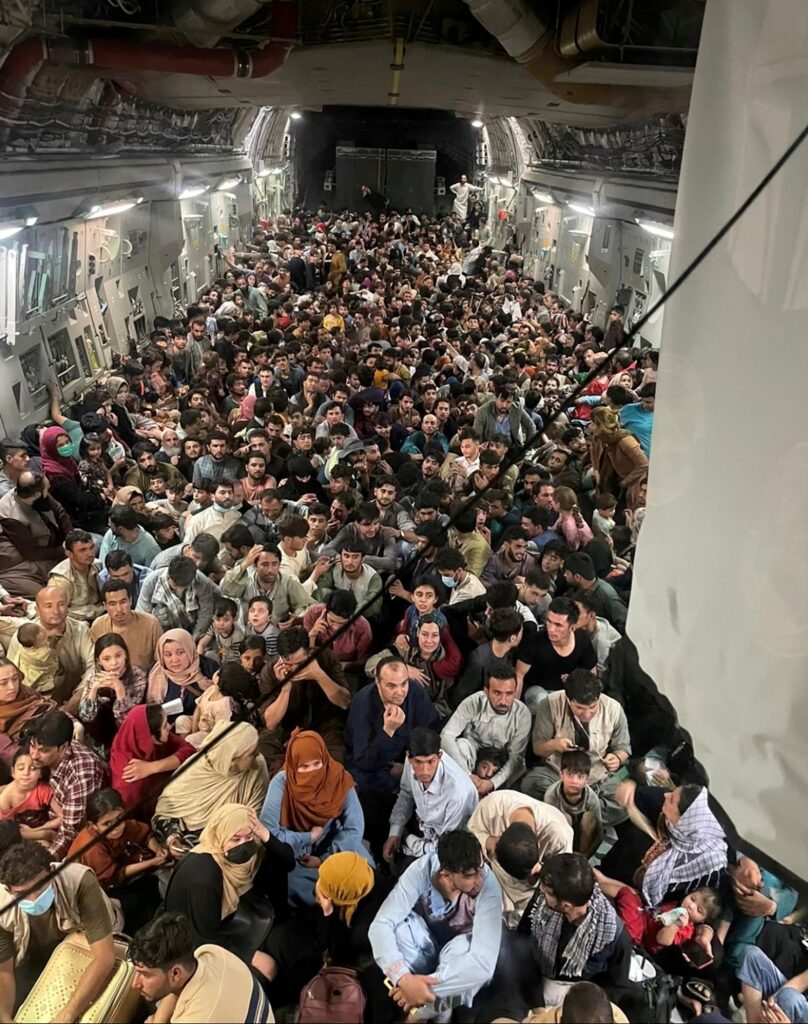
The family was in the process of securing Priority One (P1) eligibility, a category of the Refugee Resettlement Program for Afghan citizens who worked for the U.S. government.
But they were told processing refugee P1 cases could take months or years.
“There was no way to wait for that,” said Kobra. “The situation was not OK. He had to keep moving, and we were not working.
“We didn’t have any money.”
Journey to freedom
Out of desperation, they decided to try again to cross the Iran border.
“We were hiding our faces,” said Kobra. “We took public buses, but they still had checkpoints.
“They were coming on the bus looking at everybody; sometimes they had a picture in their hand.
“I don’t know if we were lucky or something, but they didn’t get us.”
The three stayed in Iran for nine months, cleaning houses and doing odd jobs to survive until they were approved to move to Brazil on a humanitarian visa issued to persecuted Afghans.
“But it was just a visa, nothing else,” said Kobra. “When we got to the country, they didn’t have any support.”
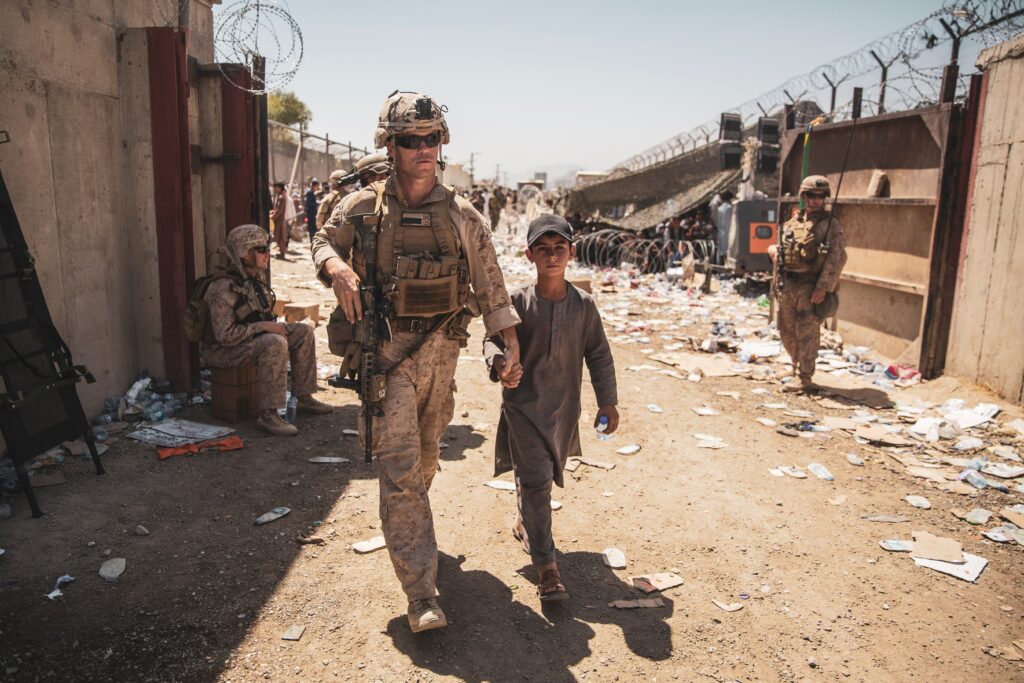
The family lived with other Afghan refugees in a makeshift camp in Terminal 2 of São Paulo’s international airport. There were no available shelters in the city.
“Some of them were lucky to get some help from organizations,” said Kobra. “But there were people there who had been waiting for a month. We were sleeping in chairs.
“So, we got a group of Afghan people together, and we decided to move.”
By “move,” Kobra means they decided to undertake a perilous trek through nine countries, eventually making their way north to the United States border.
“We were a group of 50 people,” she said. “We just moved country by country. We walked, went by car, bus and airplane, too.”
Throughout the journey, Kobra never lost her trust in God’s plan.
“I just want to say it doesn’t matter how hard life is or how hard your situation is,” she said. “Never lose your faith, never lose your hope.
“Just keep trying hard and everything will be fine; you get what you work for.”
The journey took 45 days.
A fearful welcome
“When we got to the border, we waited on the other side,” recalled Kobra. “And then, the border officers came and they just picked people. Like they pointed and said, ‘You and you can come.’”
The border patrol chose Kobra and Zainab but not Mohammad.
“You didn’t have any choice,” said Kobra. “I told them he is my husband, and they said, ‘You want to come or you don’t want to?’”
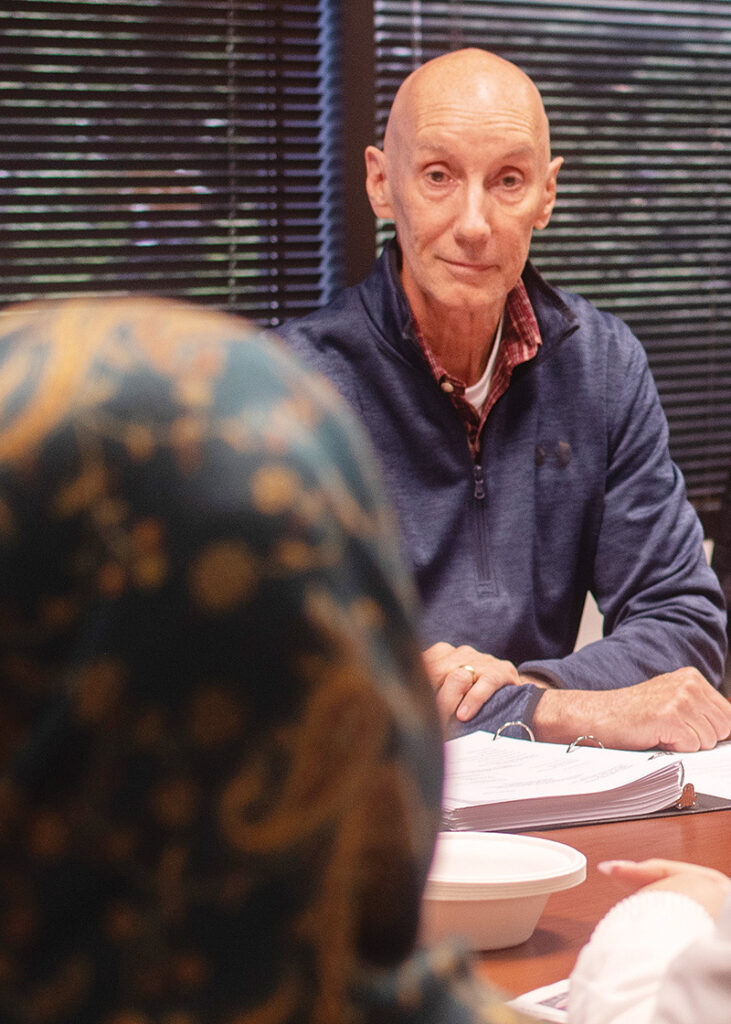
Kobra and her mother were handcuffed and bussed to a center for processing.
“They took everything — our phones, our backpacks and whatever we had,” said Kobra. “Then, they moved us to a room that was completely dark.
“You couldn’t see anything, and they were taking us out one by one.”
Kobra was terrified when guards took her out and subjected her to a barrage of questions about where she was going in the United States.
“I told them, ‘I don’t know anybody here.’” she said. “I asked them, ‘I don’t know where to go. Can you help me?’ And they said, ‘I’m not your dad. I didn’t tell you to come here.’”
Because they had no sponsor in the United States, Kobra and Zainab were fingerprinted, processed and transported to a hotel in San Diego where they were finally reunited with Mohammad.
The family’s security depended on finding a contact within the United States. They began making phone calls and fortunately found that Mohammad’s father had a friend in Iran, who had a brother in Kansas, who was willing to help.
“When we got the address,” said Kobra. “They gave us documents we were able to fly with. That’s how we got to Kansas.”
The friend cosigned for an apartment, and an Afghan benefactor helped with the first month’s rent.
But Kobra’s family just had refugee status and was at risk for deportation. The only safe way forward was to apply for political asylum.
A Catholic welcome
The family turned to La Luz Immigration Clinic to navigate the complex path of seeking asylum.
“When you walk in our door here,” said La Luz managing immigration attorney Greg Bole, “the Beatitudes are [displayed] behind the receptionist.
“‘Welcome the stranger’ is part of the Beatitudes, and that’s the mission of La Luz.”
Short on resources to help Kobra’s family, Bole reached out to Bob Lambrechts, senior counsel for Lathrop GPM, who volunteers to do pro bono work for La Luz clients.
Normally practicing as a patent attorney, Lambrechts had a learning curve to master sufficient immigration law but was willing to do the work for a refugee who helped the United States.
“Someone like Bob who sees this need — and realizes I can get up to speed on this and make a real difference — is just outstanding,” said Bole.
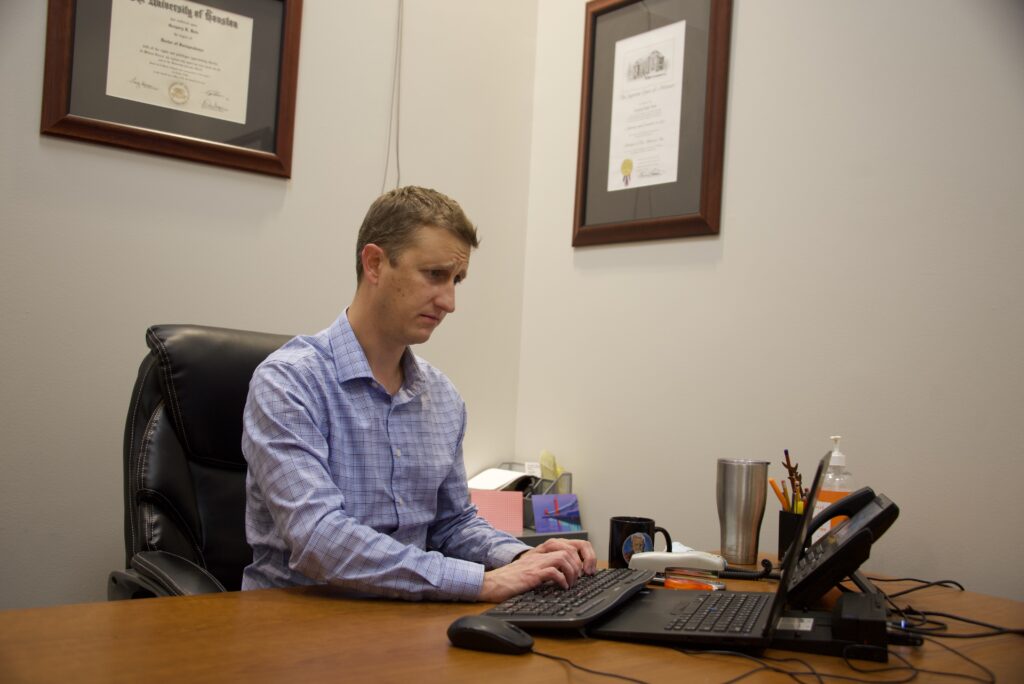
When Lambrechts took the case, he first got the family employment authorization documentation so they could begin working and support themselves.
Then, he was able to accelerate the process for granting asylum.
“Or else it would have been years before they got a hearing on their asylum status,” he said.
Mohammed, Kobra and Zainab had a merit hearing on Feb. 28 and after nearly four grueling hours, were granted asylum that day.
Now, Kobra and her husband are able to work and support their family. Kobra has begun studies at Johnson County Community College in Overland Park and Mohammad and Zainab are taking classes to learn English.
“That family has a unique story,” said Bole. “But everyone who comes here and applies for asylum wants to work and to be a positive member of our society because they weren’t allowed to be a member of the society they were born into.”
For Kobra, this journey to a new life is a gift from God.
“Our faith was our only hope,” she said. “It doesn’t matter how hard situations were — days and nights we were sleeping outside.
“But we believed God is not going to leave us alone, ever.”
Ways to help
• You can support families like Kobra’s by making a financial donation online to Catholic Charities of Northeast Kansas’ Refugee and Immigration Services program at: https://catholic charitiesks.org/refugee-donations.
• ReCONNECT, Catholic Charities of Northeast Kansas’ refugee youth mentorship program, is recruiting adults ages 21 and older to help refugees ages 15-25 achieve educational and career goals. For more information, send an email to: ehardy@catholiccharitiesks.org.
• Volunteers are needed to provide essential learning and life skills to refugees of all ages, including tutoring English language and citizenship prep classes. Training is provided. To learn more, go online to: catholiccharitiesks.org/refugee-and- immigration/refugee-learning-center.
La Luz Immigration Clinic
La Luz Immigration Clinic is a full-service immigration law firm sponsored by Catholic Charities of Northeast Kansas. Run by bilingual (Spanish/English) representatives and an attorney, La Luz provides vital legal assistance on nonbusiness immigration matters.






